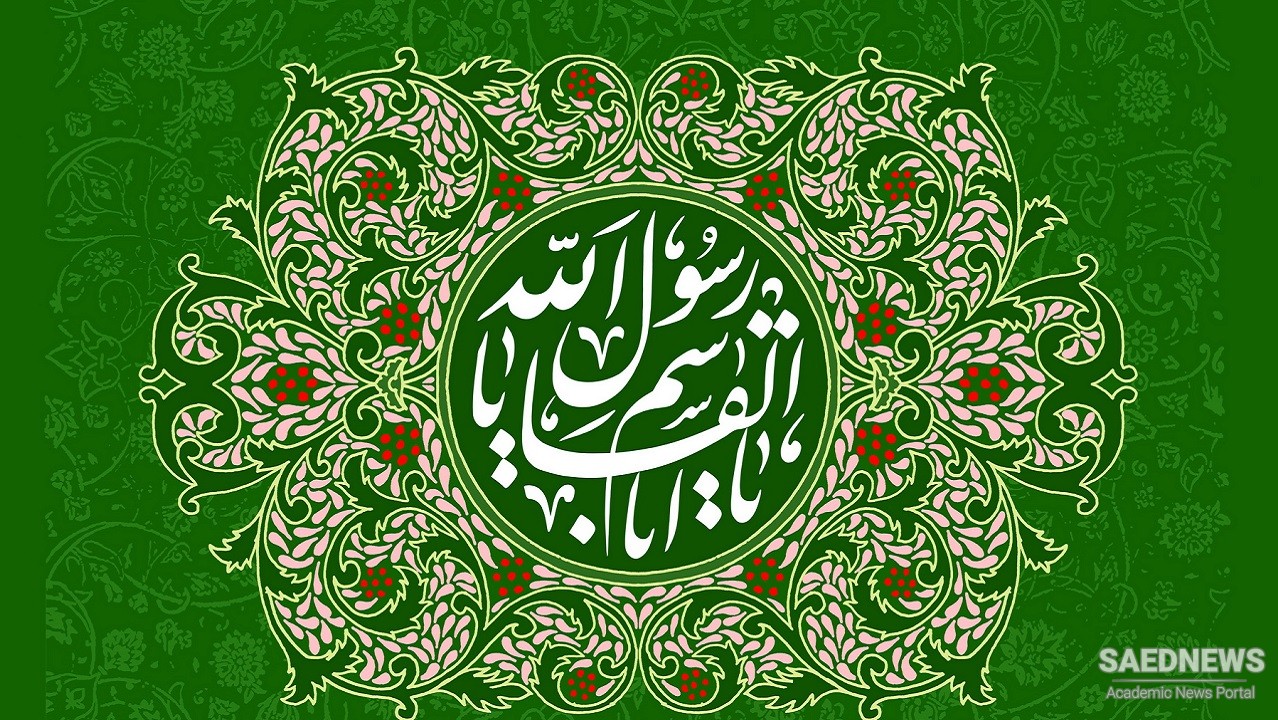The eminent virtue of some prophets has been love and others withdrawal, fear of God and asceticism. As far as the Blessed Prophet is concerned, his eminent virtues were sincerity towards God and the Truth, generosity towards all beings and spiritual poverty associated with simplicity and humility. The Blessed Prophet has said, "Poverty is my pride" (al-faqru fakhri) and Islamic spirituality is often called "Muammadan poverty".
This did not mean that the Blessed Prophet was opposed to the people who were wealthy or disdained earthly possessions. His own wife Khadijah was, after all, a wealthy merchant. What this faqr meant was essentially humility and awareness of our nothingness before God while preferring simplicity to ornateness and luxury. The Blessed Prophet was hard with himself and sought constantly to discipline himself. He always emphasized humility although he was the greatest of men and certainly aware of his own nature. But much of his Sunnah and the adab or manner of acting associated with it exists for the purpose of inculcating the virtue of humility (tawac;fu' or khushu') whose highest form is our awareness of our nothingness before God, symbolized also by the prostrations during the daily prayers.
The Blessed Prophet was also full of generosity and magnanimity (kiramah or sharaf). To the same extent that he was strict with himself, he was generous with others. Nobility of character implies both giving and forgiving, the giving of oneself and one's efforts, thoughts and belongings to others and the forgiving of the faults of others and what they have done to one's person. The Blessed Prophet's life is replete with instances in which he gave of himself to others and was generous in the fullest sense of the term and also of moments of forgiveness of which the conquest of Makkah is the supreme example. This episode demonstrated his nobility of character at its height for he forgave, while he was at the pinnacle of power, those who had wronged him in the worst manner over the years. During certain moments when he acted as judge and did not forgive the wrongdoings of someone, he had the justice of God and the welfare of the community in mind. He acted not as an individual but as a functionary of a human collectivity. Otherwise, there was never a sense of personal vengeance and vindictiveness in his dealings with and treatment of others.
Finally, the Blessed Prophet possessed the virtue of sincerity in its fullness. There is no act which he accomplished or word that he uttered without complete sincerity. But most of all he was sincere with God and his sincerity was the same as truthfulness. The fact that he was called al-Amln, the trusted one, from his youth, means that this quality was present in an eminent fashion in him from childhood and had become perfected when he was chosen as the Prophet of God. Not only the Blessed Prophet never lied, but as a result of this virtue of sincerity and truthfulness, he was able to put each thing in its place, to be logical and objective in his judgment of events, ideas and persons, and to avoid subjective and individualistic distortions. But above all it meant that he was disposed to see the truth and to receive it without changing its nature and content. That is why he was blessed with the knowledge of the most profound of truths, namely La ilaha illa 'Llah, and chosen to disseminate this central and essential truth on the surface of the earth.


 Shia Notion of Succession: Eternal Messenger of the Heavens
Shia Notion of Succession: Eternal Messenger of the Heavens














































